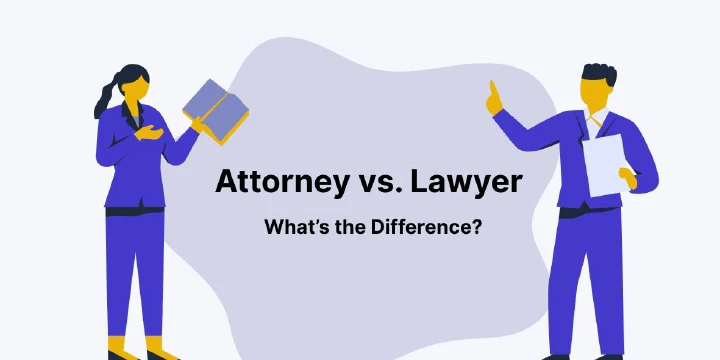Contract Breach: A Comprehensive Guide to Forms, Consequences, and Prevention
Discover the different forms a contract breach can take, the legal and financial consequences that result, and how effective contract management can help you minimize risks and act more securely. This guide offers valuable insights and practical tips for anyone looking to understand and protect their contractual relationships.

What Exactly is a Contract Breach?
Today, we delve into the topic of contract breach. Whether you’re running a company, working as a freelancer, or just dealing with contracts in everyday life—understanding contract breaches can help you avoid legal pitfalls and effectively protect your rights. In this article, you will learn what a contract breach is, the forms it can take, and how you can protect yourself. Our goal is to provide you with practical insights and make complicated legal concepts understandable.
Have you ever wondered what exactly happens when someone doesn’t keep a contract as agreed? Imagine you order a new couch for your living room. You are thrilled to finally relax on your new super-comfy couch. But then, oh no, the delivery doesn’t come as promised. This is a classic example of a contract breach.
Forms of Contract Breaches
Contract breaches can occur in many different forms, depending on which obligations are not fulfilled. Below, we look at the three most common types of contract breaches you might encounter in practice:
Non-fulfillment
A classic case: A contractual partner fails to provide their guaranteed services at all. Imagine you booked a catering service for an event, and the provider just doesn’t show up, without any prior warning or explanation. This is a clear case of non-fulfillment, leading to significant inconvenience and potentially financial losses.
Delayed Fulfillment
Time is often a critical factor in contractual relationships. Delayed fulfillment occurs when services are not provided within the agreed timeframe. Suppose you purchased new software that was supposed to be installed by a certain date, and the provider delays the installation without a valid reason. This delay can affect your business operations and lead to additional indirect costs.
Defective Fulfillment
Sometimes the contract is formally fulfilled, but the quality or specifications of the delivered goods or services do not match what was agreed upon. For example, you receive a product that is defective or does not meet the agreed specifications. Such cases of defective fulfillment can often be complex, as they raise questions about the extent to which the delivered goods or services deviate from the contract terms.
Each of these breaches can have different legal and financial consequences, and knowing how to identify and respond to them is crucial for protecting your interests.
Legal and Financial Consequences of Contract Breaches
Contract breaches often have far-reaching legal and financial impacts. It’s important to understand what consequences can arise from a contract breach so that you can respond appropriately and protect your interests.
Legal Consequences
If a contractual partner fails to meet their obligations, legal steps can be initiated to enforce fulfillment or seek damages. In Germany, § 280 of the Civil Code (BGB) governs claims for damages due to breach of duty. Depending on the type of breach, you may also be able to rescind the contract or claim a contractual penalty if such was agreed upon.
Examples of Legal Measures:
- Damages: Demand compensation for the losses incurred due to the contract breach.
- Rescission of Contract: Cancel the contract if the violation is significant.
- Enforcement of Contract Fulfillment: In certain cases, especially with unique goods or services, fulfillment of the contract can be legally enforced.
Financial Impacts
The financial consequences of a contract breach can be significant. Besides the immediate financial damage, such as lost profits or additional costs for obtaining replacement services, indirect costs such as legal advice and court costs can also arise. Moreover, a contract breach can impair trust between business partners, potentially affecting long-term business relationships.
Preventive Measures Against Contract Breach
To minimize the risk of a contract breach and avoid the associated unpleasant consequences, it is advisable to take preventive measures. Here are some effective strategies you can implement to protect yourself and your business.
Clear Contractual Terms
A well-structured contract is the foundation for successful business relationships. Ensure that all contract terms are clearly and unambiguously articulated, so there is no confusion about the expectations and obligations of the involved parties.
Tips for Effective Contract Terms:
- Detailed Description of Services: Define exactly what is to be delivered or performed, including all relevant specifications and deadlines.
- Consequences for Non-Compliance: Incorporate clear provisions about the consequences of a contract breach, including possible penalties and rights of withdrawal.
Regular Reviews and Communication
Keep in regular contact with contractual partners to ensure that all parties understand their obligations and are complying with them. Open communication can prevent many problems before they become serious.
Strategies for Effective Communication:
- Regular Status Updates: Set up regular meetings or reports on the progress of contract services.
- Designate Contact Persons: Ensure that each contracting party has a designated contact person to turn to with questions or issues.
Use of Contract Management Software
For businesses that regularly manage a large number of contracts, using specialized software for contract management can provide valuable support. These tools not only help organize and monitor contract deadlines but can also issue warnings when a risk of contract breaches exists.
With these preventive strategies, you can reduce the likelihood of contract breaches and enhance your legal and financial security.
Recommendations for Action in the Event of a Contract Breach
Despite the best preventive measures, a contract breach can occur. In such cases, it is important to act quickly and thoughtfully to minimize the impact and enforce your rights.
Immediate Actions After Detecting a Contract Breach
Immediately after discovering a contract breach, you should consider the following steps:
- Documentation of the Violation: Keep all evidence that substantiates the contract breach. This includes communication logs, contract documents, and any other form of evidence.
- Notification of the Contract Partner: Inform the contract partner in writing about the breach and request that they clarify or remedy the situation.
Strategic Considerations
- Assessment of the Situation: Assess the severity of the contract breach and its impact on your business.
- Legal Advice: Seek legal advice early to discuss your options and the best next steps.
Out-of-Court Settlement Options
In many cases, an out-of-court settlement is the most cost-effective solution. This can be less disruptive and helps maintain long-term business relationships.
- Negotiation Solutions: Work on a settlement that is acceptable to both parties. This might involve a renegotiation of contract terms or a compensation payment.
- Mediation: In more complex cases, involving a neutral third party, a mediator, can be helpful in reaching an agreement.
Preventive Strategies and Risk Management
To avoid future contract breaches and improve risk management, proactive steps are essential.
Continuous Improvement of Contract Practices
- Regular Review of Contract Templates: Ensure that your contracts reflect current legal standards and contain clear conditions.
- Training for Employees: Offer regular training so that your employees understand the importance and details of contract management.
Use of Technology to Minimize Risks
- Contract Management Systems: Use advanced software solutions to monitor contract deadlines and obligations.
- Analytical Tools: Employ technologies that provide data-driven insights into contract risks and performance metrics.
In Summary
Contract breaches can be challenging, but with proper preparation and the right management, the associated risks can be minimized. By establishing clear contractual terms, maintaining effective communication, and leveraging modern technologies to support contract management, you can lay the foundation for stable and successful business relationships.
In this guide, we have covered the basics of contract breaches, the associated legal and financial risks, and preventive and reactive strategies. This knowledge enables you to be better prepared for contract breaches and to respond effectively when they occur. Use the strategies discussed here to strengthen your contract practices and protect your business from the negative impacts of contract violations.
Please keep in mind that none of the content on our blog should be considered legal advice. We understand the complexities and nuances of legal matters, and as much as we strive to ensure our information is accurate and useful, it cannot replace the personalized advice of a qualified legal professional.

Table of contents
Want product news and updates? Sign up for our newsletter.
Other posts in Law

What’s the Difference Between a Lawyer and an Attorney
Attorneys and lawyers are not the same: all attorneys are lawyers, but not all lawyers are attorneys. In the …

Guide to Circular Resolutions for Ltd. Shareholders + Templates
Shareholders are involved in decisions such as approving financial statements, electing or re-electing …

Understanding Breach of Contract: Consequences and Prevention
Discover the different forms a contract breach can take, the legal and financial consequences that result, and …
Other posts in Business

40 Must-Know Contract Management Trends for 2026
The data is clear, Contract management is undergoing a major transformation, with businesses shifting away …

Guide to Circular Resolutions for Ltd. Shareholders + Templates
Shareholders are involved in decisions such as approving financial statements, electing or re-electing …

Contract Renewal vs. Contract Extension
Explore the distinctions between contract renewal and extension, including their advantages and drawbacks, …
Contracts can be enjoyable. Get started with fynk today.
Companies using fynk's contract management software get work done faster than ever before. Ready to give valuable time back to your team?
Schedule demo

